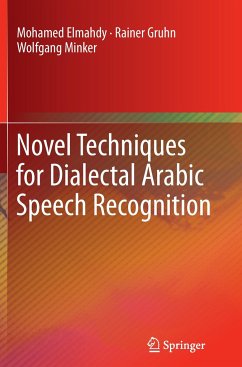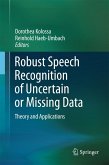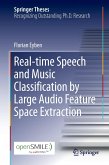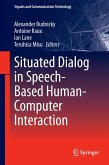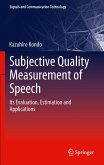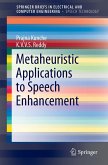Novel Techniques for Dialectal Arabic Speech describes approaches to improve automatic speech recognition for dialectal Arabic. Since speech resources for dialectal Arabic speech recognition are very sparse, the authors describe how existing Modern Standard Arabic (MSA) speech data can be applied to dialectal Arabic speech recognition, while assuming that MSA is always a second language for all Arabic speakers.
In this book, Egyptian Colloquial Arabic (ECA) has been chosen as a typical Arabic dialect. ECA is the first ranked Arabic dialect in terms of number of speakers, and a high quality ECA speech corpus with accurate phonetic transcription has been collected. MSA acoustic models were trained using news broadcast speech. In order to cross-lingually use MSA in dialectal Arabic speech recognition, the authors have normalized the phoneme sets for MSA and ECA. After this normalization, they have applied state-of-the-art acoustic model adaptation techniques like MaximumLikelihood Linear Regression (MLLR) and Maximum A-Posteriori (MAP) to adapt existing phonemic MSA acoustic models with a small amount of dialectal ECA speech data. Speech recognition results indicate a significant increase in recognition accuracy compared to a baseline model trained with only ECA data.
In this book, Egyptian Colloquial Arabic (ECA) has been chosen as a typical Arabic dialect. ECA is the first ranked Arabic dialect in terms of number of speakers, and a high quality ECA speech corpus with accurate phonetic transcription has been collected. MSA acoustic models were trained using news broadcast speech. In order to cross-lingually use MSA in dialectal Arabic speech recognition, the authors have normalized the phoneme sets for MSA and ECA. After this normalization, they have applied state-of-the-art acoustic model adaptation techniques like MaximumLikelihood Linear Regression (MLLR) and Maximum A-Posteriori (MAP) to adapt existing phonemic MSA acoustic models with a small amount of dialectal ECA speech data. Speech recognition results indicate a significant increase in recognition accuracy compared to a baseline model trained with only ECA data.

